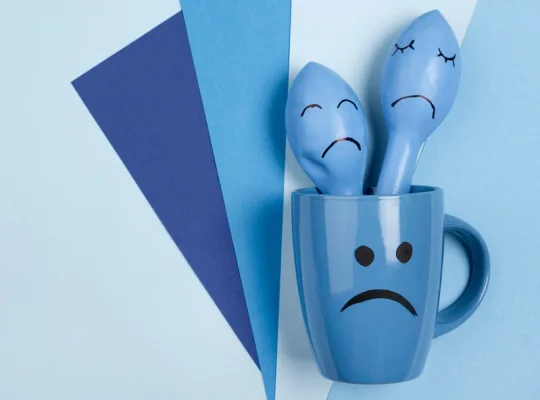Common Myths about Depression

Depression is a complex mental health condition that is often surrounded by misunderstanding and stigma. Misconceptions about depression can prevent those affected from seeking help and receiving the support they need. In this article, we will debunk some of the most common myths about depression, providing clarity and a better understanding of this serious illness.
Myth 1: Depression Is Just Feeling Sad
One of the most pervasive myths is that depression simply means feeling sad. In reality, depression is a clinical disorder that involves persistent feelings of sadness, emptiness, and despair that are powerful enough to interfere with daily function. It’s not something that can be willed away or “snapped out of.”
Myth 2: Depression Is a Sign of Weakness
Another damaging myth is that depression is a sign of personal weakness or a character flaw. Depression is a complex neurological condition influenced by genetic, biological, environmental, and psychological factors. It’s not about lacking resilience; it’s a health condition that requires understanding and medical care.
Myth 3: Depression Isn’t a Real Illness
Some people mistakenly believe that depression isn’t a real medical condition. However, depression is a diagnosable and treatable medical condition, recognized globally by medical institutions like the World Health Organization. It has well-documented symptoms and can be effectively treated with a combination of medication, therapy, and lifestyle changes.
Myth 4: Medication Is the Only Way to Treat Depression
While medication can be an effective treatment for depression, it is not the only option. Therapy, particularly cognitive-behavioral therapy (CBT) and interpersonal therapy (IPT), has been shown to be highly effective in treating depression. Lifestyle changes, such as regular exercise, a healthy diet, and sufficient sleep, can also play a significant role in managing symptoms.
Myth 5: You Can Never Recover from Depression
Many believe that once you have depression, it is a lifelong struggle. While depression is a chronic condition for some, it can also be episodic, allowing individuals to have periods of good health. With the right treatment plan, many people recover completely from depression and lead healthy, fulfilling lives.
Myth 6: Depression Only Affects Adults
Depression can affect people of all ages, including children and adolescents. Younger individuals may have symptoms of irritability, academic decline, and changes in social behavior. Recognizing depression in its early stages is crucial for effective intervention and treatment.
Myth 7: If You Have Depression, You Can’t Hold Down a Job
While depression can cause significant challenges in work performance, many people with depression can work and be productive in their careers. Accommodations such as flexible work hours, tasks modification, and support from employers can enable individuals with depression to succeed at work.
Myth 8: Depression Is Always Triggered by a Traumatic Event
While traumatic events like the loss of a loved one or a job can trigger episodes of depression, it’s not always the case. Depression can develop without an obvious trigger due to underlying biochemical imbalances, genetic predispositions, or other health conditions.
Conclusion
Dispelling myths about depression is essential for fostering a society that supports mental health awareness and encourages those affected to seek help. Understanding that depression is a complex condition with various treatments available can empower individuals and reduce the stigma associated with this disorder. As awareness grows, more people can access the help they need and deserve.
